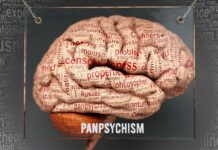I put it to you that humor is a gift from God. Why else would laughter have wellbeing benefits? The more we laugh, the longer we live! Laughter resolves so many stresses and tensions. To me, as a doctor, it is clearly very beneficial and that speaks of a Divine gift!
The Biblical God seems to have no sense of humor whatever. But I believe the real God enjoys a joke!
They do say, “Laughter is the best medicine.” Well, it’s true! I’m serious; there have been scientific studies on this…
Laughter relaxes the whole body. A good, hearty laugh relieves physical tension and stress, leaving your muscles relaxed for up to 45 minutes after.
Laughter boosts the immune system. Laughter decreases stress hormones and increases immune cells and infection-fighting antibodies, thus improving your resistance to disease.
Laughter triggers the release of endorphins, the body’s natural feel-good chemicals. Endorphins promote an overall sense of well-being and can even temporarily relieve pain. In fact…
Laughter has an effect similar to antidepressants. Laughing activates the release of the neurotransmitter serotonin, the same brain chemical affected by the most common types of antidepressants, SSRIs. It’s not clear from the research how long this effect sticks around, but the burst of brain activity laughing triggers is undoubtedly potent, at least for short periods of time.1
Laughter protects the heart. Laughter improves the function of blood vessels and increases blood flow, which can help protect you against a heart attack and other cardiovascular problems.2
Laughter burns calories. Okay, so it’s no replacement for going to the gym, but one study found that laughing for 10 to 15 minutes a day can burn approximately 40 calories—which could be enough to lose three or four pounds over the course of a year.
Laughter lightens anger’s heavy load. Nothing diffuses anger and conflict faster than a shared laugh. Looking at the funny side can put problems into perspective and enable you to move on from confrontations without holding onto bitterness or resentment.
Laughter may even help us to live longer. A study in Norway found that people with a strong sense of humor outlived those who don’t laugh as much. The difference was particularly notable for those battling cancer.3
Now Norway has a mainly Lutheran population, which is a religion not exactly crackling with mirth, is it? Yet even they found a strong connection between laughter and survival.
I’m known for my often quirky, sometimes twisted, sense of humor and it leads me to want to ask: did they test it out on dirty jokes too? Does laughing at filth have the same physiological benefits for us?
Haha!
What Is Laughter?
Laughter is supposed to be a reaction to surprise, rejection and incongruity. It is a complicated process, engaging multiple regions of the brain and the body.
The frontal lobe is thought to help you interpret the various bits of information you receive and then it decides whether they are funny. That triggers an emotional response in the limbic system, which controls feelings like pleasure and fear and that in turn stimulates your motor cortex
This controls your physical response—the guffaws, snorts and chuckles we recognize as laughter.
“When you start to laugh you get a fairly large contraction in the rib cage — very large and very fast. Those contractions push air—ha, ha, ha. It’s a very primitive way of making noise. At the brain level, it’s associated with a change in the circulating endorphins,” said Sophie Scott, a professor of cognitive neuroscience at University College London.
This can give you a pain-killing sensation. As you laugh, it lowers your adrenaline levels and over a longer time frame your levels of the stress hormone cortisol. As such, laughter can improve your mood and make your physical and emotional response to stress less intense.
“You’re more relaxed, less stressed, and you have a pleasant buzzy feeling,” Scott says. [https://edition.cnn.com/2021/07/01/health/science-of-laughter-scn-wellness/index.html]
The Anatomy Of An Illness
In 1964 former Saturday Review editor Normal Cousins published a book called The Anatomy of An Illness. In it he describes how he used laughter to reclaim his health, after being diagnosed with a debilitating and relentless illness (ankylosing spondylitis).
Cousins checked himself out of hospital and checked into a hotel, where he watched endless humorous movies. He literally laughed himself back to life and wrote a book about it!
He also took high dose vitamin C, which would have had a very considerable benefit. And he had to the love and support of his wife, which should not be discounted as a major healing force! But laughter seemed to be supreme.
The story was made into a movie in 1984, starring Edward Asner.
Evolutionary Benefits?
In a 2005 issue of the Quarterly Review of Biology, evolutionary biologist David Sloan Wilson and his colleague Matthew Gervais, both then at Binghamton University, NY, offered an explanation of the evolutionary benefits of humor.4 Wilson is a major proponent of group selection, an evolutionary theory based on the idea that in social species like ours, natural selection favors characteristics that foster the survival of the group, not just of individuals
Wilson and Gervais applied the concept of group selection to two different types of human laughter: spontaneous, impulsive and involuntary laughter as a genuine expression of amusement and joy; and contrived or put-on laughter. The former we call Duchemme laughter (or smiles), after scholar Guillaume-Benjamin-Amand Duchenne de Boulogne, who first described it in the mid-19th century.
All smiles (by definition) raise the corners of the mouth. If the person is particularly animated, the cheek masses rise too. But only the genuine Duchenne smile reaches the eyes and wrinkles them! See illustration…
Duchenne smile vs. Social smile
Non-Duchenne smiles or laughter are not necessarily “fake” but people employ them as a voluntary social strategy—for example, to punctuate ordinary conversations with warmth or pleasure, even when those chats are not particularly funny.
Feeling Scared?
Here’s a quick tip to finish:
State your fear out loud and then laugh! If you can’t actually laugh for fear, say (out loud) Ho ho ho or Ha ha ha until the fear seems sillier than the pretend laughter! Then you’ll start laughing for real!
So there you have it! Ho ho ho ho!
To your good health,
Prof. Keith Scott-Mumby
The Official Alternative Doctor
References:
1. Journal of Korean Academy of Nursing 2015; 45(2): 221-230.
2. https://www.forbes.com/sites/daviddisalvo/2017/06/05/six-science-based-reasons-why-laughter-is-the-best-medicine/
3. Svebak, Sven; Kristoffersen, Bjorn; Aasarod, Knut. Sense of Humor and Survival Among a County Cohort of Patients with End-Stage Renal Failure: A Two-Year Prospective Study. International Journal of Psychiatry in Medicine. Vol. 36, No. 3, 2006. pp. 269-281
4. The Evolution and Functions of Laughter and Humor: A Synthetic Approach. Matthew Gervais and David Sloan Wilson in Quarterly Review of Biology, Vol. 80, No. 4; pages 395–430; December 2005




